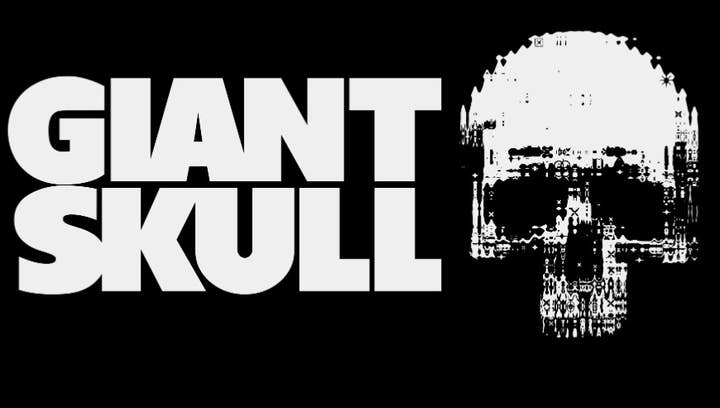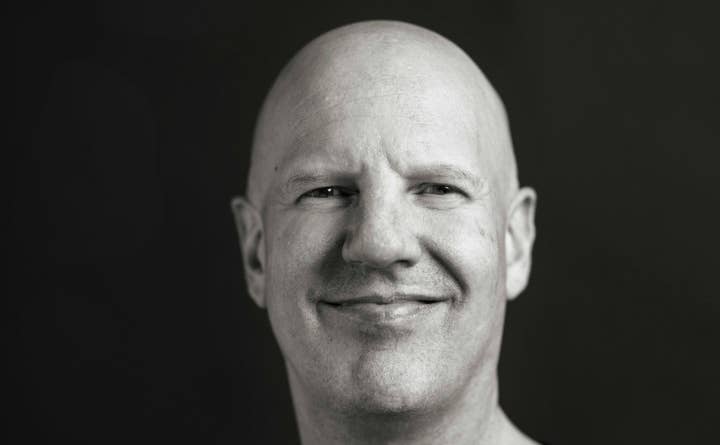Respawn veteran Stig Asmussen forms Giant Skull to build AAA single player games
"I think we can make a very successful competitive game with 100 people"
Sign up for the GI Daily here to get the biggest news straight to your inbox
Experienced veterans from EA's Respawn studio have formed a new AAA team called Giant Skull.
The developer is led by Stig Asmussen, who is best known as the game director for 2019's Star Wars Jedi: Fallen Order and 2023's Star Wars Jedi: Survivor. Giant Skull has an office in LA, although employs people from around the world.
The leadership team also includes Star Wars: Jedi Survivor alumni Jon Carr (CTO) and Jeff Magers (design director), Fortnite veterans Patrick Murphy (art director), Lauren McLemore (lead producer) and Brian Campbell (animation director). Meanwhile, Unbroken Studio's Anthony Scott takes the roles of COO and CFO.
Speaking to GamesIndustry.biz, Asmussen explains that the idea for Giant Skull started while he was at EA, but he was "committed to seeing Jedi: Survivor through" first. He says launching his own studio wasn't something he was looking to do, but when the opportunity came his way, he felt compelled to do it.
"I really enjoyed my time at Respawn, and the Jedi team is incredible," he tells us. "EA was a very supportive company. But this opportunity presented itself, and… there was this itch that as soon as I started thinking about it, I just couldn't shake.
"The early days of Respawn was really fun. We were like a garage band. That was one of my favourite times of my career. Building a team was so much fun. The ability to bring great people together, build a studio from the ground up, defining what our pillars are, what our culture is… that seemed incredible exciting to me."
"I make single player games. That is what excites me, and I want to continue doing that"
The press release announcing Giant Skull describes the projects it's building as a 'gameplay-driven, story-immersed action-adventure games'. And fans of Asmussen's previous work, which also includes the first three God of War games, will have an idea of what to expect.
"For us, it would be somewhat foolish to try and make something that we're not experienced with or really good at," he explains. "But also, I've been grateful that I can work on the types of games I like to play."
He adds: "We don't want to try and do something we're not comfortable with. We are single player-focused. That being said, it is early days and we are always looking for opportunities to engage players in different ways. So if there was something that could make the experience better, and it's not going to pose a challenge to us in being able to execute… we are very open minded about that. But I make single player games. That is what excites me, and I want to continue doing that."
The team is funded by private investors, and Asmussen says there is sufficient money available to support "our vision and build our studio."
"And from day one, it was very important for me, and for this studio, that we're truly independent, and we have the creative freedom that we need to be our best."
The four 'cultural pillars' of Giant Skull are 'autonomy, momentum, curiosity and respect'.
Asmussen explains that these pillars "are in harmony with each other". Autonomy is around not being micromanaged and being given ownership over what you're working on. This connects to respect, and being trusted to get the work done.

"That is something that really carried from Respawn," he says. "That is how that studio is run. It is engrained in how I work."
The momentum pillar is around having a "flow and cadence to how we produce the games". And that ties with giving people autonomy to make decisions.
And finally, there's curiosity. This is something that the firm's new website plays up to, as visitors are challenged to put in command prompts to discover secrets and information about the studio.
"If you poke around the website, you can ask a lot of questions, but that doesn't mean you'll get answers," he says. "But at least you're asking the questions and being curious. That is what I look for in myself and the team."
AAA games are expensive to make and hugely risky, and we've seen high-profile development leaders, like Asmussen, launch independent studios, release games and struggle to meet expectations or profitability.
"AAA can sometimes mean AAA dollars," he says. "But a lot of that depends on how you ramp up your headcount, and how quickly the expectations are that you ship the game. And that can make the game more expensive if you've got a lot of people on a long timeline.
"I don't think you need a couple of hundred people to make a AAA game. I don't know how big we're going to get, but, especially being able to call our own shots, I think we can make a very successful competitive game with 100 people."
"I don't think you need a couple of hundred people to make a AAA game."
The opportunity to create something new is the exciting part about launching a new studio. But as we've seen with Immortals of Aveum, which is a fantasy shooter created by a new studio formed by Call of Duty veterans, that there's a risk in creating something radically different. Equally, we've seen with The Callisto Protocol, which is a horror game made by a new studio formed by Dead Space alumni, that creating something too familiar can also be detrimental.
"How do we decide we're not being too safe? That we're being ambitious but not being too ambitious? That is just something we have to measure all the time," Asmussen says. "We have to challenge ourselves, but we have to be conscious of what production realities are, and making sure that we are respecting people's time. Every decision I make, I am asking how is it going to affect the player, but also how is it going to affect the team?
"It's a balancing act. Relying on our experience from the past, we are always going to strive to do something that's bleeding edge, but we need to be very conscious that we need to ship."
Giant Skull launches during deeply unsettled times for the games business, with rising costs and falling revenue leading to mass layoffs and low investment. For those out there seeking work, this new studio might present an opportunity, and the firm says it's not looking for any specific roles, but just "good, kind people who want to work on these kind of games."
The opportunity isn't limited to LA, either, with Giant Skull allowing its employees to work wherever they want.
"I am at home right now, but I'm normally in the office. I made that decision," Asmussen says. "We support people wherever they want to work, all over the world. We understand that everybody's lives are differences, with different priorities and needs. We want to make sure we can support people doing their best work, and that is not location specific.
"The bottom line is we need video games, and we need people to make them"
"It is great that we have a brick and mortar set-up. It's a great studio and space for us to get together and collaborate. But we've learnt a lot over the last several years. Jedi: Survivor, pretty much that entire game, was built remote. So it can be done. A lot of teams have done it."
He acknowledges that there was a dip when his previous team moved to working remotely, but it can be managed and improved upon.
"On Jedi: Fallen Order, we had our completion percentages on the milestones, and we had the same data on Survivor. There was a little bit of a dip, but you can account for that, and the fact that we have that experience is something that will guide us moving forward."
It may be a frightening time to work in video games, but Asmussen is confident in what he's building.
"Everybody's on edge," he concludes. "And seeing people affected that you're close to across the industry, across the world, it's really difficult. But I look at this opportunity that we have, it could be an opportunity for others, too. Maybe this is a glimmer of hope? The bottom line is we need video games, and we need people to make them, and players want to jump into these experiences. So we have to keep our heads up and continuing making them."
Sign up for the GI Daily here to get the biggest news straight to your inbox

